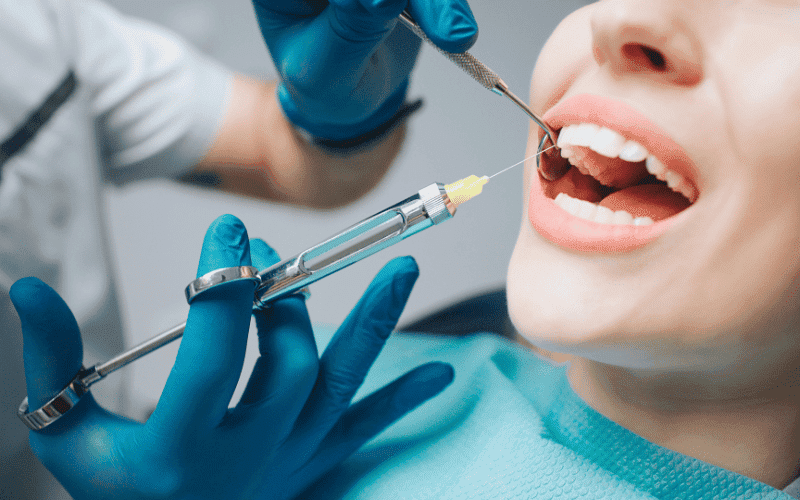
Ah, wisdom teeth. Those enigmatic third molars are shrouded in mystery and, sometimes, throbbing pain. Evolving from a time when our ancestors supposedly needed them for a tougher diet, wisdom teeth (also known as third molars) often come in during your late teens or early twenties. But unlike their name suggests, they don’t always bring wisdom – sometimes, they bring a whole lot of trouble. This blog will be your guide to navigating the world of wisdom teeth, specifically when those extra molars decide to become unwelcome guests in your mouth. We’ll explore the signs that indicate it’s time for wisdom teeth removal. Also, we’ll delve into the removal process itself and offer some tips for a smooth recovery.
The Not-So-Wise Side of Wisdom Teeth
Have you ever heard of those mysterious “wisdom teeth”? They’re the last set of molars that grow in, usually in your late teens or early twenties. Back in the day, people munched on tougher foods, and these extra grinders were helpful. But these days, our softer diets mean our jaws are smaller, and wisdom teeth often don’t have enough space to come in comfortably. This can lead to some problems down the line.
Signs Your Wisdom Teeth Might Be Causing Trouble
Wisdom teeth don’t always cause problems, but sometimes they can be real troublemakers! Here’s how to know if yours might need a visit from the dentist:
- Throbbing Pain: This is a common sign. Wisdom teeth trying to erupt can cause pain and pressure in your jaw and cheek.
- Swollen Gums: The gums around your wisdom teeth might get puffy and red, which could mean they’re inflamed or even infected.
- Trouble Opening Wide: Sometimes, wisdom teeth make it hard to open your mouth all the way.
- Crowded Smile: Wisdom teeth can crowd your other teeth, making them crooked or misaligned.
- Gum Issues: Partially erupted wisdom teeth can trap food and bacteria, leading to gum disease.
- Jaw Problems: In rare cases, stuck wisdom teeth (impacted ones) can damage your jawbone or nearby nerves.
Wisdom Teeth Removal: What to Expect
The decision to remove wisdom teeth is a personal one, made in consultation with your dentist. If removal is recommended, here’s what you can expect:
- Pre-operative consultation: Wisdom teeth removal in Prairie Valley, KS, starts with a dentist discussing the procedure, including potential risks and complications, and answering any questions you have.
- The procedure: The dentist will make an incision in the gum tissue and remove the wisdom tooth. In some cases, it may be necessary to remove a small amount of bone to access the tooth.
- Anesthesia: Wisdom teeth removal in Prairie Village, KS, is typically performed under anesthesia, either local anesthesia (numbing the area) or general anesthesia (putting you to sleep).
- Recovery: After the procedure, you can expect some swelling and discomfort. Your dentist will provide you with specific instructions on post-operative care, including pain management, swelling reduction, and dietary restrictions.
Wisdom Teeth Removal: Debunking the Myths
Are you thinking now about getting your wisdom teeth removed? It’s a common procedure, but there’s a lot of information floating around, and some of it needs to be more isn’t on point. Let’s clear up a few myths about wisdom teeth removal in Prairie Village, KS, so that you can make an informed decision.
Myth 1: Wisdom Teeth Removal is Always Painful
Reality: Thanks to modern dentistry, wisdom teeth removal doesn’t have to be a nightmare. Local anesthesia effectively numbs the area, and you can even choose sedation options to help you relax during the procedure. While there will be some soreness afterward, it’s manageable with medication prescribed by your dentist.
Myth 2: Recovery Takes Forever
Reality: Sure, you might feel a little tender for a few days after wisdom teeth removal, but most people bounce back to their normal activities within a week. Following your dentist’s post-operative instructions will help ensure a smooth recovery.
Myth 3: Wisdom Teeth Removal Weakens Your Jaw
Reality: Actually, removing wisdom teeth that are causing problems can help prevent future issues with your jaw. If your wisdom teeth are overcrowded or impacted, they can put pressure on other teeth and even damage your jawbone. Taking them out can actually strengthen your jaw in the long run.
Promptly addressing wisdom tooth problems can help prevent various issues such as pain, infection, and damage to surrounding teeth. It is important to consult with a dental professional before deciding to remove wisdom teeth. Recognizing signs and symptoms of trouble can empower individuals to make informed choices about their oral health. Regular dental check-ups and clear communication with your dentist are crucial for ensuring optimal wisdom tooth removal aftercare and overall oral health.




